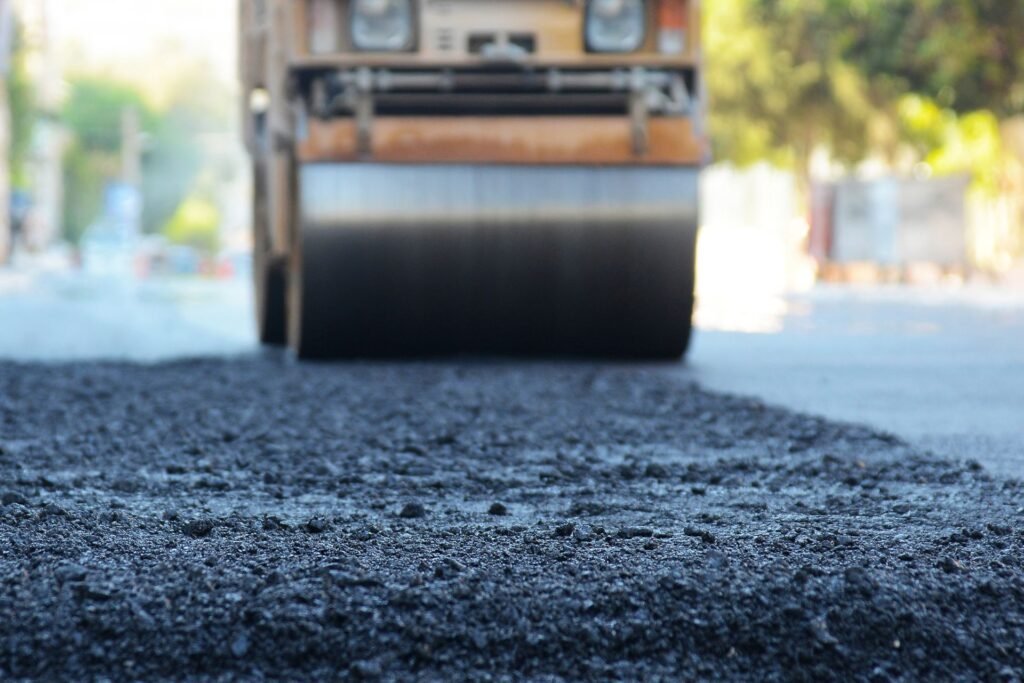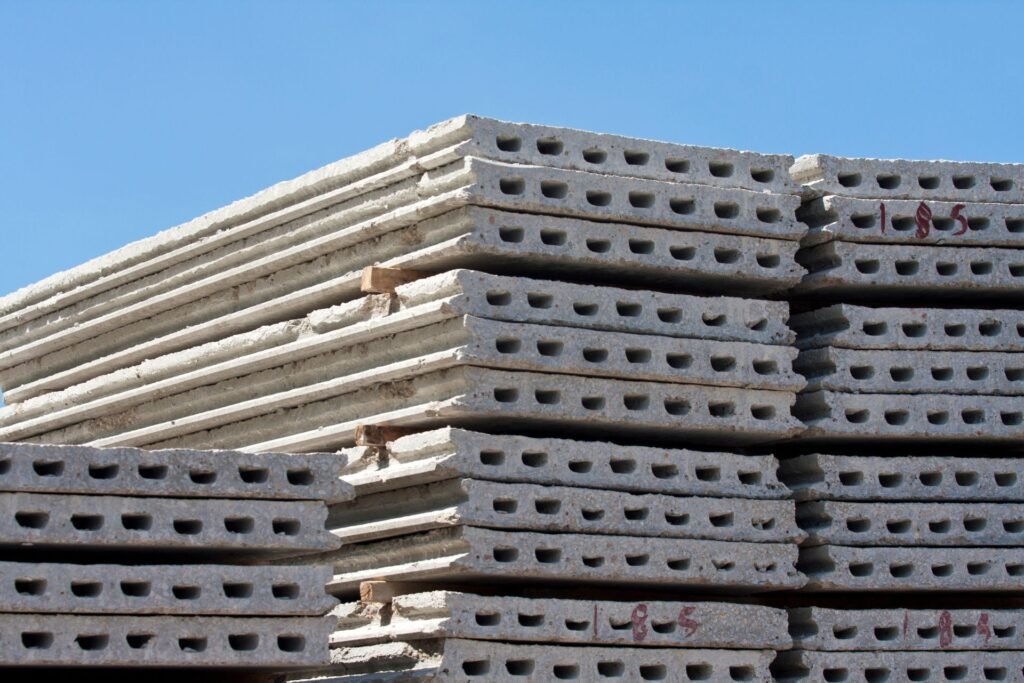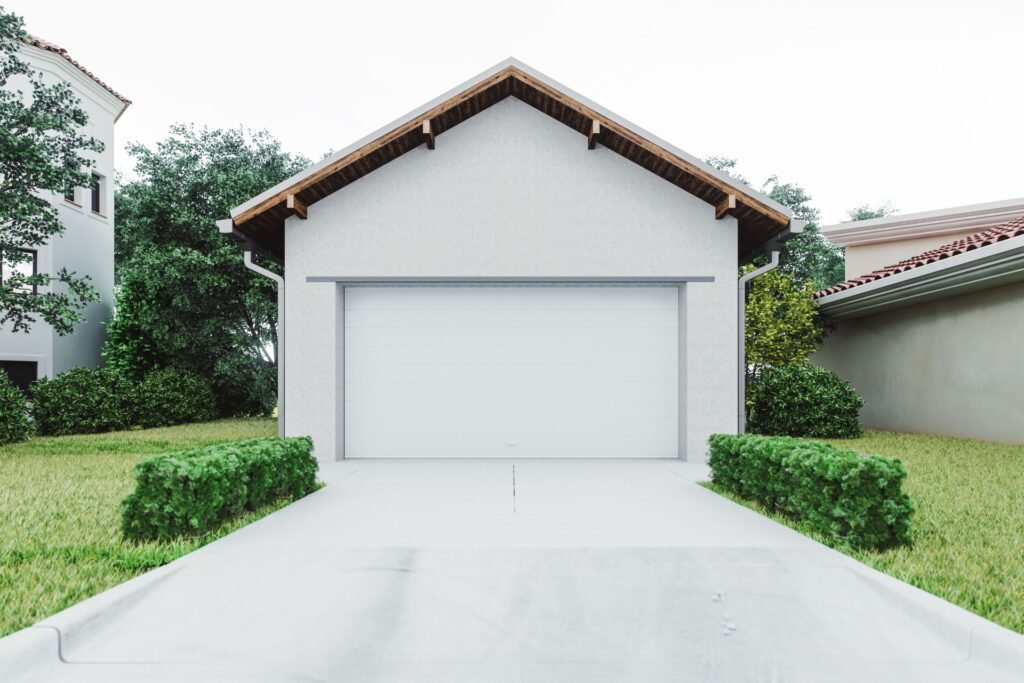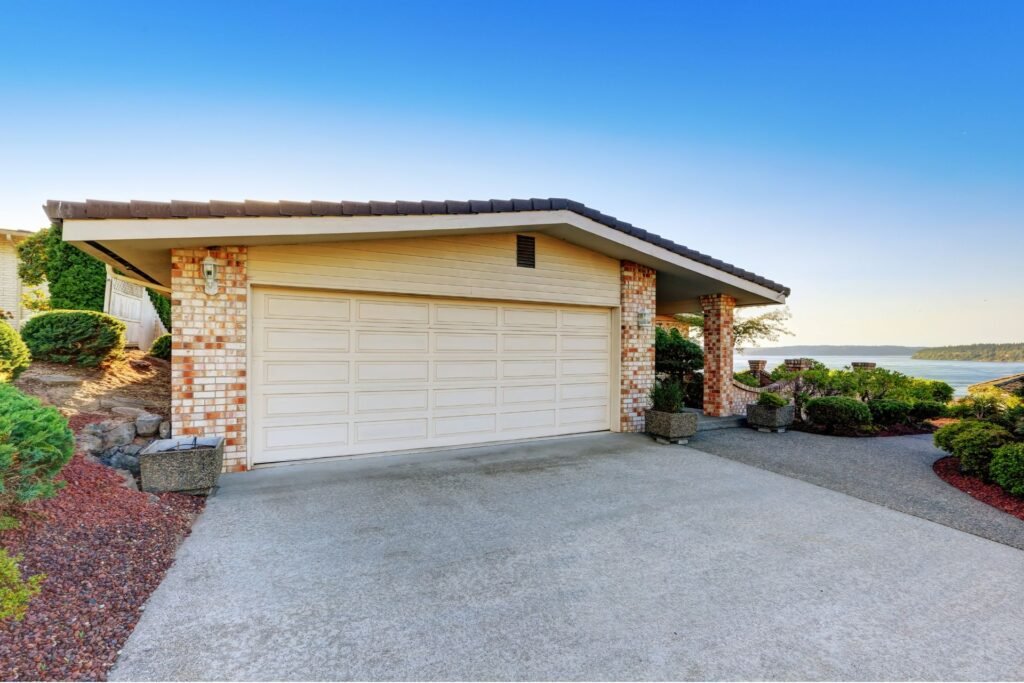Welcome to our comprehensive guide to understanding the cost of asphalt per square meter in New Zealand. Whether you’re planning a new driveway, paving a parking lot, or simply curious about the costs associated with these projects, you’re in the right place. Asphalt is a popular choice for its durability and efficiency, but many factors influence its price, from material costs to labor rates. In this article, we’ll delve into what you can expect to pay for asphalt installations across different regions, explore the variables that affect these costs, and offer tips to help you budget and plan effectively. Stay tuned as we break down everything you need to know to make informed decisions about your next paving project.
Generally, the price ranges between NZ$45 to NZ$70 per square meter. This cost is influenced by the quality of materials, the complexity of the project, labor costs, and geographic location. Keep in mind that larger projects typically result in lower per square meter costs due to economies of scale. Proper maintenance can also significantly extend the lifespan and reduce long-term expenses. Always consult with a professional to get an accurate estimate tailored to your specific needs and local pricing conditions.
Table of Contents
Overview Of Asphalt Usage In New Zealand
Asphalt is a versatile and widely used material in New Zealand’s construction and infrastructure projects. It plays a crucial role in shaping the country’s transport networks and public spaces. Here, we’ll explore the common uses of asphalt in New Zealand, including its application in roads, driveways, and parking lots, and discuss why it is often preferred over other materials such as concrete.
Common Uses of Asphalt in New Zealand
Roads
Asphalt is the backbone of New Zealand’s road construction. It is used extensively to pave highways, urban streets, and rural roads. The material’s flexibility, durability, and cost-effectiveness make it ideal for coping with varying traffic volumes and environmental conditions found across the country. Asphalt’s ability to be quickly laid down also minimizes disruptions caused by road construction, making it a practical choice for busy areas.
Driveways
Many homeowners in New Zealand prefer asphalt for paving driveways because of its affordability and strength. Asphalt driveways can last many years with proper maintenance, such as seal coating and crack filling. Additionally, the black color of asphalt provides excellent heat absorption, which is beneficial in colder regions as it helps to melt snow and ice more quickly than other surfaces.
Parking Lots
Asphalt is a popular choice for parking lots in commercial and residential areas. It withstands heavy loads and constant traffic, maintaining its integrity over long periods. The ease of marking parking lines and other signage on asphalt also adds to its utility, making it a functional choice for parking areas.
Benefits of Using Asphalt Over Concrete
While concrete is another common material used for similar applications, asphalt offers several advantages that make it more suitable in many scenarios:
Cost Efficiency
Asphalt is generally more cost-effective than concrete, both in initial installation and maintenance costs. Its lower price point makes it accessible for larger projects, such as expansive road networks or commercial parking lots.
Faster Construction Time
Asphalt paving can be completed quicker than concrete, which requires a longer curing time. This rapid installation allows roads and driveways to be opened to traffic much sooner, a significant advantage in minimizing traffic disruptions and project timelines.
Flexibility
Asphalt is more flexible than concrete, which means it can better accommodate the movements and shifts in the ground beneath it without cracking. This flexibility is particularly valuable in earthquake-prone areas like New Zealand, where ground movement is common.
Easier Repairs and Maintenance
Maintaining asphalt surfaces is straightforward and cost-effective. Damaged areas can be patched up easily, and the surface can be resealed to extend its lifespan, which is less labor-intensive and expensive than the repairs typically required for concrete.
Recycling Capabilities
Asphalt is highly recyclable, making it an environmentally friendly option. Reclaimed asphalt can be reused in new projects, reducing the need for new materials and minimizing waste.
In conclusion, asphalt’s adaptability, cost-effectiveness, and durability make it a key material in New Zealand’s infrastructure development. Its superior flexibility and easier maintenance over concrete further underscore its preference in numerous public and private construction projects across the country. Whether for constructing resilient roads, practical driveways, or robust parking lots, asphalt stands out as a preferred choice in New Zealand’s landscape.

Factors Influencing Asphalt Pricing
When planning a project involving asphalt, understanding the various factors that can impact the cost is crucial. The price of asphalt isn’t static; it’s influenced by several dynamic components ranging from material costs to labor and logistical considerations. Here’s a detailed exploration of these factors to help you budget and plan effectively.
Material Costs
The cost of raw materials is a fundamental factor in determining the price of asphalt. Asphalt primarily consists of bitumen (asphalt cement) and aggregates like sand and gravel. The prices of these materials can fluctify based on market demand, availability of resources, and geopolitical factors that might affect oil prices since bitumen is a petroleum product. An increase in raw material costs will invariably raise the cost of the asphalt mix, impacting the overall budget of any paving project.
Labor Costs
Labor costs are another significant component of asphalt pricing. The process of laying asphalt requires skilled laborers—from operators for heavy machinery to workers who spread and compact the asphalt. The cost of labor can vary greatly depending on the region, the complexity of the job, and the availability of skilled workers. Areas with a shortage of labor may see higher prices due to the demand for skilled workers, which can escalate overall project costs.
Transportation and Logistics
The logistics involved in transporting asphalt from the plant to the project site also play a crucial role in pricing. Asphalt needs to be kept hot during transport to maintain its workability, which requires specialized equipment and timely delivery. The further the project site is from the asphalt plant, the higher the transportation costs. Additionally, logistical challenges like traffic conditions and route accessibility can also affect the cost.
Scale of Project
The scale of the asphalt project significantly influences pricing. Large commercial projects often benefit from economies of scale, which means the cost per square foot can be lower compared to smaller residential projects. This is because large-scale projects can streamline labor and materials usage, reducing overall costs. However, larger projects may also encounter complexities that could add to the cost, such as extensive site preparation and compliance with commercial regulations.
Seasonal Variations
Seasonal variations can greatly affect asphalt laying and its costs. Asphalt paving is best performed in warm weather because colder temperatures can cause the asphalt to cool too quickly, making it difficult to compact properly. In regions with distinct seasons, there is a higher demand for paving services during the warmer months, which can drive up prices. Furthermore, seasonal weather conditions like rain can delay projects, extending the timeframe and potentially increasing costs due to extended labor and equipment rental.
When budgeting for an asphalt project, it’s important to consider these factors comprehensively. Each element from material costs to seasonal variations plays a pivotal role in shaping the final cost. Understanding these factors will not only help in planning and executing the project efficiently but also in managing expectations related to cost and timelines.

Current Rates For Asphalt Per Square Metre In NZ
When planning a construction or paving project, understanding the current costs of materials is crucial for budgeting and planning. Asphalt is a key material for such projects, and its price can vary significantly across different regions in New Zealand. Here, we provide a detailed look at the current rates for asphalt per square meter in NZ, explore recent pricing trends, and offer a visual comparison of regional cost differences.
Current Prices Across Various Regions
Asphalt pricing in New Zealand does not follow a one-size-fits-all approach. Costs can vary based on local availability of raw materials, transportation costs, and the scale of the project. Generally, the average price of asphalt per square meter can range from NZD $30 to $70. In major urban areas like Auckland and Wellington, prices tend to be on the higher end due to higher demand and operational costs. In contrast, more remote areas such as those on the South Island might experience slightly lower prices due to different economic dynamics and lesser demand.
Recent Trends in Asphalt Pricing
Recently, asphalt pricing in New Zealand has seen fluctuations influenced by several economic factors. These include:
Raw Material Costs: Increases in the price of crude oil, a primary component of asphalt, directly affect asphalt pricing.
Transportation and Logistics: With changes in fuel prices and the logistics industry facing its own challenges, transporting materials has become more expensive, affecting overall costs.
Demand Fluctuations: Large-scale infrastructure projects can lead to spikes in demand for asphalt, temporarily driving up prices.
The past year has particularly seen a trend towards rising prices, mainly due to global economic recoveries post-pandemic, which have increased demand and strained supply chains.
Visual Comparison of Regional Asphalt Prices
To help you better understand how asphalt prices vary across New Zealand, a comparison chart can be incredibly useful. Below, we would typically include a graph that visually displays these differences. This chart would illustrate the average prices in major regions such as Auckland, Christchurch, Wellington, and more rural areas, providing a clear overview of where you might encounter higher or lower prices.
This data not only aids in planning and budgeting but also helps stakeholders in the construction industry make informed decisions about where and when to initiate projects based on asphalt costs.
Keeping track of asphalt prices is essential for anyone involved in construction and paving projects in New Zealand. By staying informed about regional cost variations and recent pricing trends, you can better navigate the financial aspects of your projects and plan accordingly. Understanding these factors ensures that your project remains on budget and is executed efficiently, regardless of the economic landscape.

Calculating Your Asphalt Needs
When planning an asphalt paving project, whether it’s for a driveway, parking lot, or any other space, it’s crucial to accurately measure the area and estimate the materials needed. This ensures you order the right amount of asphalt, thus saving time and money. Here’s a step-by-step guide on how to measure the area for asphalt paving and estimate the required materials and costs.
Step 1: Measuring the Area
To begin, you’ll need to determine the total area that will be paved. Follow these steps:
1. Identify the Shape of the Area: Most paving areas are rectangular or square. However, for irregular shapes, try to divide the area into a combination of rectangles, triangles, or circles.
2. Measure the Dimensions: Using a tape measure, determine the length and width of each section you’ve identified. For circular areas, measure the diameter.
3. Record Your Measurements: Write down each measurement in feet (or meters, depending on your preference). Accuracy here is key to ensuring your estimates are reliable.
Step 2: Calculating the Area
Once you have your measurements, you can calculate the area of each section. Here’s how:
Rectangular Areas: Multiply the length by the width.
Triangular Areas: Multiply the base by the height and then divide by two.
Circular Areas: Calculate the area by using the formula \( \text{Area} = \pi \times (\text{radius})^2 \), where the radius is half the diameter.
Sum up the areas of all sections to get the total area in square feet or square meters.
Step 3: Estimating Asphalt Needs
Asphalt requirements are generally specified in tons or cubic yards, and the thickness of the asphalt layer is a crucial factor. Here’s a simple way to estimate how much asphalt you’ll need:
1. Determine the Desired Thickness: Decide how thick the asphalt layer should be. A typical thickness for a driveway might be 3 inches.
2. Convert Thickness to Feet: If your thickness is in inches, convert it to feet for consistency (e.g., 3 inches is 0.25 feet).
3. Calculate Volume: Multiply the total area by the thickness in feet to get the volume in cubic feet.
4. Convert to Cubic Yards or Tons: Knowing that there are 27 cubic feet in a cubic yard, divide the total volume by 27 to convert to cubic yards. For tons, use an average density of the asphalt (e.g., 145 lbs per cubic foot) to convert the volume to weight.
Step 4: Estimating Costs
To estimate the cost of asphalt:
1. Get Local Material Costs: Check the current price of asphalt per ton or cubic yard from local suppliers.
2. Calculate Total Material Cost: Multiply the amount of asphalt needed by the price per unit.
3. Consider Installation and Delivery Fees: Don’t forget to include costs for labor and delivery, which can significantly affect the overall expense.
Using an Online Calculator
For those looking for a quicker estimation, consider using an online asphalt calculator. These tools often require just the width, length, and desired thickness of your area, and they will automatically compute the amount of asphalt and estimated cost.
By following these detailed steps, you can confidently measure and calculate your asphalt needs for any project. Proper planning not only optimizes the use of materials but also helps in managing your budget effectively.

Tips For Reducing Asphalt Installation Costs
When considering an asphalt installation project, whether for a driveway, parking lot, or any other pavement surface, managing costs effectively is crucial. This section provides actionable advice on how to reduce expenses without compromising on quality. By choosing the right contractor, timing your project wisely, and maintaining your asphalt properly, you can ensure that your investment is both durable and cost-efficient.
Choosing the Right Contractor
Selecting the right contractor is arguably the most critical step in your asphalt installation project. A reliable and experienced contractor can not only provide quality work but can also help avoid unnecessary costs that come from poor installation. Here’s how to ensure you pick a cost-effective contractor:
Do Your Homework: Research potential contractors thoroughly. Look for reviews, ask for references, and check their licensing and insurance status.
Compare Quotes: Don’t settle for the first estimate you receive. Get multiple bids to compare costs and understand where savings can be made.
Experience Matters: Opt for contractors who have a proven track record with projects similar to yours. Experienced contractors are less likely to make costly mistakes.
Timing Your Project
The timing of your asphalt project can significantly affect its overall cost. Labor rates and material costs can fluctuate throughout the year, making some periods more cost-effective than others. Here’s how to time your asphalt project for maximum cost efficiency:
Off-Peak Seasons: Generally, late spring and early fall are ideal for asphalt projects. These times avoid the extreme temperatures of summer and winter, which can complicate asphalt installation.
Watch Material Prices: Asphalt prices can vary depending on crude oil prices. Monitoring these can help you choose an optimal time to schedule your project.
Plan Ahead: Scheduling your project during a contractor’s less busy times can sometimes secure you a better rate, as contractors are eager to keep their teams busy.
Maintenance Tips
Proper maintenance is crucial in extending the lifespan of your asphalt and reducing long-term costs. Neglect can lead to severe deterioration, requiring costly repairs. Here are some maintenance tips to keep your asphalt in top condition:
Regular Cleaning: Keep the asphalt surface free of debris and liquids that can seep into the material and cause damage.
Sealcoating: Apply a seal coat every two to three years to protect the asphalt from weathering, stains, and wear.
Prompt Repairs: Address cracks and holes as soon as they appear to prevent them from expanding and causing more significant issues.
Implementing these strategies will not only help in managing the initial costs but also in minimizing future expenditures, making your asphalt installation a worthwhile investment. By understanding how to choose the right contractor, timing your project correctly, and maintaining your asphalt effectively, you can enjoy a durable, cost-efficient surface for years to come.

Future Trends In Asphalt Pricing
Asphalt plays a crucial role in infrastructure development, especially in road construction and maintenance. Understanding its pricing trends is essential for planners, contractors, and government bodies involved in budgeting and project planning. This article delves into the potential future trends in asphalt pricing in New Zealand and explores the external factors likely to influence these costs.
Analyzing Future Trends in Asphalt Pricing in New Zealand
The future pricing of asphalt is subject to various dynamic factors that can alter supply, demand, and costs. As we look forward, several key elements are expected to shape the market:
Economic Growth and Construction Demand: Economic growth directly influences construction activity. As New Zealand continues to expand its infrastructure, including roads and commercial buildings, the demand for asphalt is expected to rise, potentially pushing prices upward if supply constraints occur.
Supply Chain Adjustments: Global events, such as pandemics or political unrest, can disrupt the supply chains of raw materials needed for asphalt production, such as bitumen—a petroleum product. The stability of these supply chains is crucial for maintaining steady asphalt prices.
Technological Advancements: Innovations in asphalt production, such as the development of more durable or eco-friendly mixtures, could affect pricing. These advancements might initially increase costs due to research and development expenses but could lead to cost savings over time through increased efficiency and longevity.
External Factors Influencing Future Asphalt Costs
Several external factors can significantly impact the cost of asphalt, making the pricing landscape complex. Key influences include:
Global Oil Prices: Since bitumen, a key component of asphalt, is derived from crude oil, the price of asphalt is inherently linked to oil prices. Fluctuations in global oil markets can lead to corresponding changes in asphalt costs. As global economies shift towards renewable energy sources, the volatility in oil prices could be heightened, impacting asphalt prices.
Environmental Regulations: New Zealand, like many other countries, is increasingly focused on environmental sustainability. Stricter environmental regulations could require changes in asphalt formulation to reduce environmental impact, potentially increasing production costs. For example, the use of recycled materials or the development of lower-emission asphalt could become more prevalent but might initially be more costly.
Geopolitical Factors: International relations and trade policies can affect the import costs of raw materials for asphalt production. Tariffs, trade agreements, or conflicts can alter these costs significantly, influencing the overall pricing of asphalt in New Zealand.
Local Market Competition: The level of competition among asphalt suppliers in New Zealand can also influence prices. Increased competition tends to drive prices down, whereas a market dominated by few suppliers might see higher pricing levels.
Predicting the future trends in asphalt pricing requires a nuanced understanding of both local and global factors. For stakeholders in New Zealand’s construction and infrastructure sectors, staying informed about these trends is crucial for strategic planning and budgeting. As the market continues to evolve, monitoring these factors will help in making informed decisions that align with economic and environmental goals.

FAQs: About Asphalt Cost Per Square Meter NZ
What is the average cost of asphalt per square meter in New Zealand?
The average cost of asphalt typically ranges from NZ$45 to NZ$70 per square meter, depending on various factors such as location, scale of the project, and the current market rates for materials and labor.
Why does the cost of asphalt vary between regions in New Zealand?
Asphalt costs vary between regions primarily due to differences in transportation costs, availability of materials, local labor rates, and the proximity to asphalt plants. Remote areas might encounter higher prices due to increased logistics costs.
How does the quality of materials affect the asphalt pricing?
Higher quality asphalt materials generally cost more but provide better durability and longevity, reducing the need for frequent repairs. Opting for premium materials can be more cost-effective in the long run due to lower maintenance costs.
What are the labor costs associated with asphalt installation?
Labor costs for asphalt installation can vary widely but are a significant part of the overall expense. These costs are influenced by the complexity of the project, the expertise of the contractors, and the labor market conditions in the area.
Can the scale of the project affect the cost per square meter?
Yes, larger projects often benefit from economies of scale, which can lower the cost per square meter. Bulk purchasing of materials and streamlined labor efforts can reduce overall costs.
How do seasonal variations impact asphalt installation costs?
Seasonal variations can affect both the availability and the cost of asphalt installation. Prices may be higher during peak seasons when demand is high, and some seasons may offer more favorable weather conditions for laying asphalt, affecting scheduling and costs.
What is the difference between hot mix and cold mix asphalt, and how does it affect cost?
Hot mix asphalt requires heating and is generally used for permanent roads and driveways, offering greater durability. Cold mix asphalt is used for temporary patches and repairs and is less expensive. The choice depends on the project’s requirements and budget.
What should I look for when choosing a contractor for asphalt paving?
Look for contractors with good reputations, proper licensing, and positive customer reviews. It’s also important to get detailed quotes and ask about their experience with similar projects in your area.
Are there any ways to reduce the cost of an asphalt project?
Yes, planning your project during off-peak seasons, choosing the right contractor, and ensuring proper maintenance can help reduce costs. Additionally, accurately calculating needed materials can prevent overbuying.
How important is maintenance for asphalt, and what does it involve?
Proper maintenance is crucial for extending the lifespan of asphalt surfaces. This includes regular cleaning, timely repairs of small cracks, proper drainage, and periodic resealing to protect against weather damage and wear.
Conclusion
In conclusion, grasping the intricacies of asphalt costs is crucial for ensuring that project planning and budget management in New Zealand are carried out efficiently. Throughout this discussion, we have explored several essential factors that impact the pricing of asphalt, highlighting the necessity for thorough understanding to navigate financial planning effectively. Given the variability in costs depending on specific project details, it is advisable for individuals and businesses embarking on construction projects to seek tailored advice. By reaching out to local asphalt suppliers or contractors, you can obtain accurate and personalized quotes, ensuring that your project aligns with both your financial and structural expectations. We encourage you to take this proactive step toward securing a successful and economically viable project outcome.










